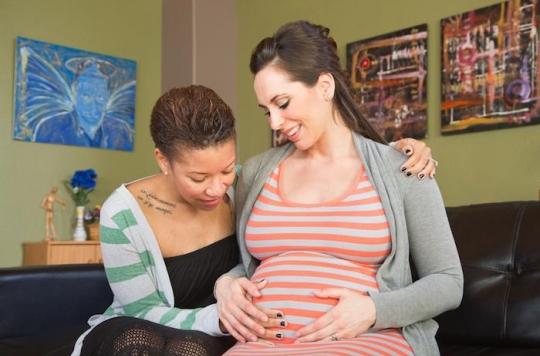The opinion of the National Consultative Ethics Committee in favor of the opening of medically assisted procreation for all women will stir public opinion. If the homosexual community, in particular, and the women who perform MAP abroad, applaud, others wonder about the family environment that is offered to these children.

Opponents of assisted reproduction for same-sex couples put forward the interests of the child. However, studies show no difference.
Four years after the opening of marriage and adoption to same-sex couples, same-sex parenting is still at the heart of the debate. Because questions persist: can one be brought up by two women or two men and build oneself “normally”? Are the interests of the child threatened?
Questions once again raised by opponents of medically assisted procreation (MAP) for all while the National Consultative Ethics Committee (CCNE) delivers its opinion on Tuesday.
Since the 1970s, child psychiatrists, psychologists and psychoanalysts have been trying to answer them. Nearly 800 scientific articles have been devoted to it. If it is not a question of summarizing the debate with “for” and “against”, it is clear that the most serious studies agree: children raised in a homoparental family do not present a greater vulnerability.
Children like the others
It appears, in fact, that children brought up by homosexual couples do as well at school as their friends from more traditional families. They do not suffer from psychological or relationship problems either. And as for the controversial issue of sexual orientation, the scientific literature does not show any differences between children.
Also, the absence of a mother or father figure does not seem to disturb the psychological and social development of children. But it can raise questions in these children about their origin, underline the specialists. Questions also present in children brought up in a single-parent family or adopted by a single person.
Few rigorous studies
In their literature review published in 2015, Olivier Vecho and Benoît Schneider, psychologists specializing in childhood, family and homoparentality, nonetheless pointed out some biases. They noted in particular that lesbian or gay parents came from more advantaged social categories. A magnifying effect which can be explained in particular by the fact that carrying out ART abroad or using a surrogate mother requires a lot of money. On the adoption side, the selection processes are very strict.
The two psychologists also indicated that the size of the samples or the recruitment of the families studied were questionable.
But in recent years, rigorous work has multiplied, allowing a more precise assessment of the development of children in a homoparental context. Studies that will also allow us to take an interest in the future of these children in adolescence, then in adulthood.
.















